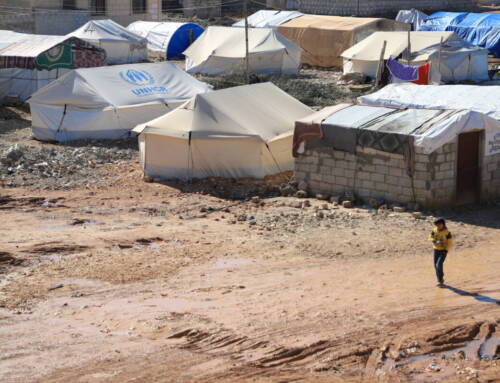A Syrian army soldier after 7 years of service: ‘We offer up our souls on the frontline and die for nothing’
When Ahmad entered the Syrian Arab Army in 2010 to fulfill his […]
15 November 2016
When Ahmad entered the Syrian Arab Army in 2010 to fulfill his military service requirement, he left behind his family of nine, and his fiancée.
Stationed in the Damascus countryside, the now-25-year-old is in his seventh year of military service. Though he has repeatedly requested discharge, the army has repeatedly denied him. With a salary of $65 per month, Ahmed’s family, which relies on his support, is struggling financially. His fiancée left him.
“The waiting was miserable for her, so we separated,” Ahmad, who asked to be referred to by his first name only out of fear of reprisal, tells Syria Direct’s Noura Hourani. “I don’t blame her, though. How long would you wait?”
Five years after his mandatory service was slated to end, Ahmad remains unmarried, separated from his family in Latakia, and struggling to support himself and relatives on a soldier’s pay.
“With our army, we’ll take our country: Enlist in the armed forces”. Photo courtesy of Al-Arabiya.
Over the years in the army, that salary has risen to $65. “Sometimes I only get half that when I’m done with a mission,” Ahmed says.
“We grumble and moan for pay raises that aren’t even worth the trouble.”
Q: When did you begin serving in the Syrian Arab Army? How much are you paid?
I entered the army in 2010 and haven’t been discharged since. Here I am, in my seventh year of military service.
My fellow soldiers and I have made discharge requests, but the response is always ‘we are at war, we have to keep you on’ and ‘your country needs you.’
My salary is SP35,000 [$65 per month] which I use for transportation costs.
[Ed.: Ahmad is from Latakia, roughly 350 km northwest of Damascus. Hikes in fuel prices have raised transportation costs, requiring Ahmad to save up his monthly salary in order to visit his family when the army grants him leave.]Q: What’s your opinion of the advertisements promoting enlistment in the army and reserve militias as well as the financial incentives used to attract volunteers for the reserve forces?
To be honest, I doubt there’s one soldier who doesn’t resent these ads and the financial incentives they promise.
How do you not feel oppressed when you see people joining these [reserve] militias and getting paid more than you? Their pay can reach SP40,000 [$75] per month.
Meanwhile, I’ve spent seven years serving my country with no appreciation.
My salary has risen from SP15,000 to SP35,000 [since 2010], but sometimes I only get half that when I’m done with a mission. These raises aren’t even enough to keep up with the cost of transportation and the government knows this.
[Ed.: Since 2013, the Syrian economy has witnessed a combination of sharp currency depreciation and hyperinflation.]They’re buying our silence. We grumble and moan for pay raises that aren’t even worth the trouble.
We’re the last people the government thinks about. We offer up our souls on the frontline and die for nothing.
Call for volunteers to join reserve militias. Photo courtesy of al-Souria.
Q: You mentioned the government’s refusal to authorize discharges. How have you felt the effects of this decision?
The seven years I served in the army have destroyed my future. I was supposed to be discharged in 2012.
I have a large family, nine all together, and I need to account for them. The government should at least pay me a salary that can support my family, but it’s the opposite. I have to borrow money here and there just to support myself.
Even leave is hard to come by. I have to pay bribes just to see my family for a day or two.
Before the war, I was about to marry my fiancée, but the waiting was miserable for her so we separated. I sank into a depression and considered suicide at various stages. I don’t blame her though. How long would you wait?
If you’re willing to play this waiting game, you’re waiting for your life or your death.
I could die at any moment. I know my family will not receive any compensation or even my body. When I was fighting the mountains of Rankous, in the Damascus countryside, I saw friends killed before my eyes. Their bodies were left on the battlefield.
Q: Have you thought about transferring to one of the other militias?
It’s not easy. You can’t just leave the army and switch over. You need to have a connection with a general in the army or the reserve militia.
I haven’t considered transferring though. I don’t want to sign up for a war without end. I’m tired and want to live a decent life, to build my future.
People who transfer to the militias have their monetary motivations, but my psyche is more valuable. Money cannot make up for this kind of life.









